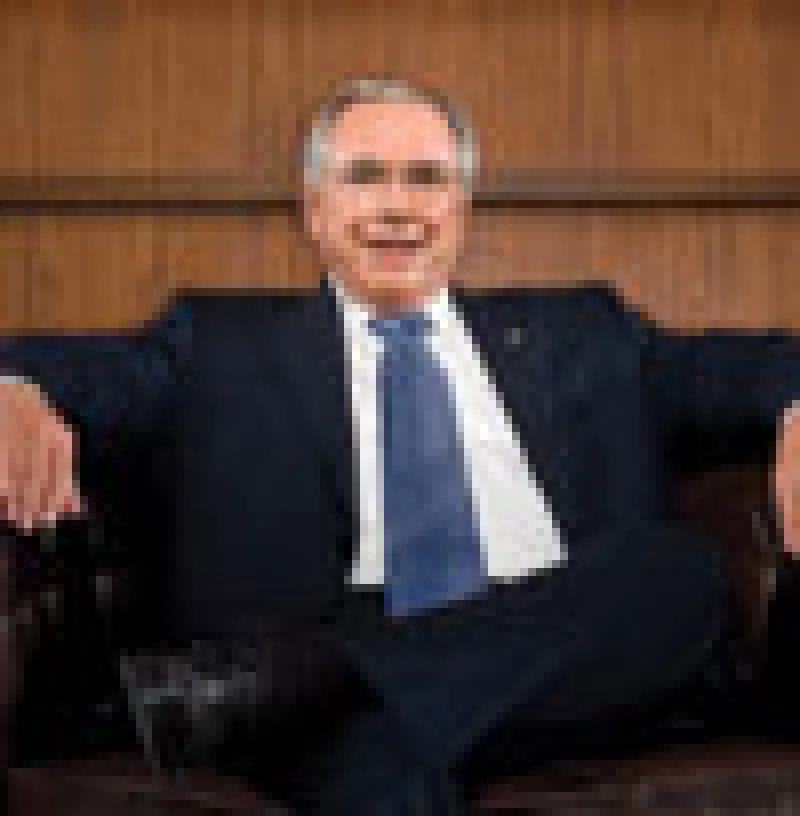In different times, no one would use the word radical to describe Frost National Bank. After all, this 140-year-old Texas lender with $13.6 billion in assets has built its fortunes on a plain-vanilla strategy: Avoid esoteric financial instruments, get to know clients well and hold on to business by providing personalized service. “We have always loaned money to people, not to projects,” says Richard Evans Jr., chief executive of Frost and its holding company, Cullen/Frost Bankers. “We don’t think of ourselves as product peddlers but as builders of relationships.”
These days, with many big banks failing or needing government bailouts to overcome a legacy of financial excess, that back-to-basics approach seems positively contrarian. Frost is an old-fashioned regional bank, taking local deposits and making traditional personal and business loans. Its deposit base is split 50-50 between businesses and consumers. On the loan side the assets are 85 percent commercial and 15 percent retail. Subprime mortgages and bad credit card debts? Frost abandoned the mortgage business in 2000 and stopped issuing credit cards two decades ago. “They’d both become commodities,” Evans explains. Globalization? Frost, headquartered in San Antonio, refuses to open branches in other states, let alone other countries. “Our brand is outstanding in Texas, but outside they’d think it’s a misspelling, that it’s First National something,” he says. Credit freeze? Last year Frost lent out $8.3 billion, up 11.4 percent from $7.5 billion in 2007.
Frost’s stick-to-the-basics style of banking has truly proved its worth in the financial crisis. The U.S. Treasury late last year offered the bank $330 million from its Troubled Asset Relief Program, but Evans says he turned the feds down because the tax implications and oversight involved in taking TARP money seemed too onerous. “Quite frankly, we didn’t need the money,” he says. “We’ve run this company conservatively, so our shareholders never got the upside of high risk and leverage. Why should they be punished now?”
Many bankers no doubt envy Evans’s freedom. Some big banks, including Goldman Sachs Group and JPMorgan Chase & Co., have publicly stated that they want to repay their bailout money as soon as possible to avoid excessive government meddling in their businesses. “Once the government is one of your shareholders, they are likely to ask nosy questions about how you run your bank,” says David Beim, a professor of finance and economics at Columbia Business School. “I can just hear the guys in Texas saying, ‘What do we need this for?’”
Evans is the first non–Frost family member to run the bank, which is steeped in the family ethic of independence. Colonel Thomas Claiborne Frost established it in 1868 so that he could assist customers of his brothers’s general store. The bank, whose credo is “Character is a person’s greatest asset,” has survived two world wars, the Great Depression, the S&L crisis and the latest financial calamity. Evans joined Frost’s training program in 1971, four years after graduating with a business degree from the University of Texas at Austin. In the ensuing decades he proved his mettle and moved steadily up the ranks, from commercial loan officer to vice president to senior vice president to executive vice president to president. He became CEO in 1997. His total compensation for 2008 was $3.37 million.
Frost has never carried large numbers of risky loans on its books. Although it was badly shaken when the oil and real estate markets in Texas tanked in the 1980s, it remained solvent throughout the period. Last year U.S. bank profits fell 90 percent, to $10.2 billion, the lowest level in 19 years, according to the Federal Deposit Insurance Corp. Frost managed to earn $207.3 million, or $3.50 per diluted common share, down just 2.3 percent from 2007. It took the profit after setting aside $38 million for possible loan losses. Frost’s stock has suffered in the market downturn, but not that badly, compared to peers in the battered financial sector. It closed at $46.45 on April 24, down from a 52-week high of $73 on September 19.
Relationship building is in the bank’s DNA. Colonel Frost, a lawyer by training, started the bank, in part, to make loans to clients of his brother’s store. Its customers were shepherds, and the loans helped them avoid pressure to sell their wool at fire-sale prices. The bank also handled store credit for customers. It grew gradually, expanding into communities where officers lent money to people they knew. In 1977 it merged with Cullen Bankers, a regional bank based in Houston, and went public. It now has 105 offices in Texas and a diversified customer base. Its training program emphasizes personalization, personalization and personalization again. “I’ve worked for banks where trust officers use technology to manage 300 accounts, and clients can’t even get their calls returned,” says Michael Milich, the executive vice president who runs Frost’s trust operations in Houston. His trust officers handle no more than 150 accounts, “so they have time to ask clients about themselves, their backgrounds, their families.”
There are checks and balances, of course. A customer’s banker can approve personal loans of as much as $250,000 and commercial loans of as much as $1 million. But for anything more than that, a credit officer takes a closer look at the numbers.
In fact, Frost turns away plenty of business. Earlier this decade, Evans recalls, financial organizations barreled into Texas, all undercutting each other’s loan rates. “I’d report on conference calls how much business we were losing to competition, and we’d get beaten up by analysts because our loans weren’t growing fast enough,” Evans recalls. “But we simply refused to lower our standards or our rates.” Evans estimates that Frost turned away $2.1 billion in loan business last year, in some cases because repayment seemed iffy, in others because customers were clamoring for rates that would not have been profitable for the bank. The rate paid on interest-bearing funds has remained relatively stable over the past year, slipping from 1.34 percent to 1.11 percent.
Frost doesn’t see itself as a full-service bank. Yes, it has branched into trusts, wealth management and insurance. And it has acquired several other smaller banks in the past 15 years. But it readily drops businesses too. Frost was doing $200 million a year in mortgages when it exited that lending in 2000. “Mortgages had become a commoditized business, and that’s not what we do,” Evans says.
Just ask Kay Dee Stella, the chief financial officer of Anslow Bryant Construction, a Houston contractor. Last May, after the firm’s revenues had grown to $180 million from $53 million in just three years, she persuaded the partners to switch to Frost from another bank, which she declined to name. She knew Frost through her former employer, Tellepsen Builders. Scott Baxter, her loan officer at Frost, is a certified construction industry professional, and gave Anslow a $5 million line of credit that Stella says she doubts she could have gotten elsewhere. “But he knew me, and he understood our industry,” she notes.
Evans has long tried to get Washington to see the good in that. He served a three-year term as a member of the Federal Advisory Council to the Board of Governors of the Federal Reserve System under Alan Greenspan and is now serving under Fed chairman Ben Bernanke.
Although Evans supports the bailout in principle, he is leery of too much government intervention. “The government must let the free-market system operate,” Evans says. “People talk about banks that are too big to fail, but the question should be, Are they too big to manage or to regulate? There are 7,000 banks in this country, many of which are perfectly healthy. And Washington had best be wary of the unintended consequences of stifling the creativity of new ideas.”
At Frost, the best new idea is as old as the hills: Stay independent and deal only with people you know and financial products you understand.






